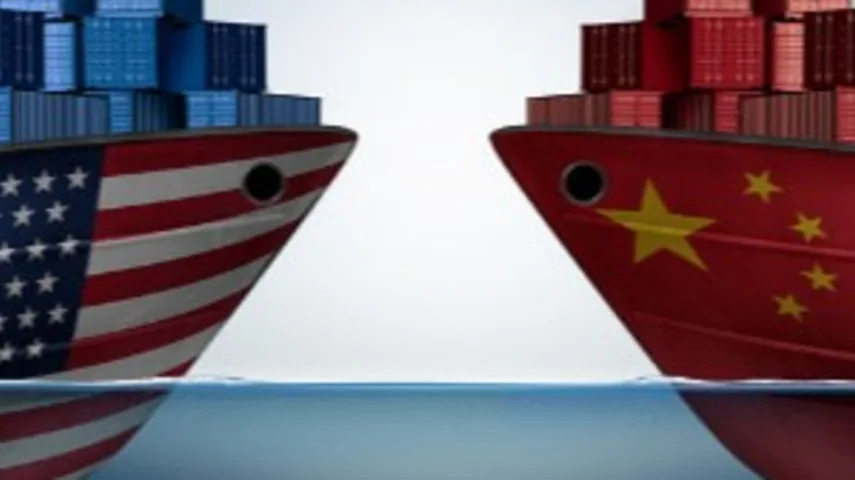How much risk remains over the US/China trade war?



While the US/China trade war dominated headlines in 2019, this year’s COVID-19 pandemic has meant it has dropped off the news agenda. But as the US presidential elections ramps up, what are experts saying about its outlook?
The presidential election was due to be held in November between current Republican President Donald Trump and Democratic nominee Joe Biden, who is nine points ahead of Trump in the polls.
Experts said they expected the tension would be contained until the election as Trump would not want to do anything to jeopardise his chance to victory and the US was already in a dire economic result as a result of COVID-19. This was in contrast to his views last year when he had hoped to demonstrate achieving a successful deal with China to voters.
Elliot Hentov, head of policy research at State Street Global Advisors, said: “We believe that escalation will be contained ahead of November’s election, as President Trump seeks to stabilise sentiment in equity markets during the peak campaign seasons and thus limit his anti-China position to campaign rhetoric”.
Jeremy Lawson, chief economist at Aberdeen Standard Investments, said: “Given the things the President is dealing with at the moment, an escalation of the trade war is not a priority for him right now but, after the election we are very concerned about the trade war”.
Any deterioration in sentiment would have repercussions for the US economy which was already fragile as a result of the widespread unemployment because of COVID-19 and would be a negative for the sitting president.
“A flare-up of the trade war could easily sap business confidence, tighten financial conditions and derail a fragile economic recovery,” said Joachim Fels, global economic adviser at PIMCO.
Binay Chandgothia, portfolio manager for Principal Global Asset Allocation, said: “Neither China nor the US can afford significant economic damage in the current environment. Even if temperatures rise, the desire to avoid detrimental economic outcomes should prompt both sides to keep working with each other. Yet, the risk of policy mistakes leading to ever more dire actions does exist.
“Although the US administration is drawing on the conflict to claim a political victory in an election year, it will almost certainly avoid nuclear options.”
Fund performance
According to FE Analytics, since the start of 2020 to 29 May, the best-performing North American fund within the Australian Core Strategies universe was BetaShares NASDAQ 100 ETF which returned 16% versus losses by North American equity sector of 3.4%.
Over one year to 29 May, 2020, four US funds had outperformed the sector which were BetaShares NASDAQ 100 ETF, SSgA SPDR S&P 500 ETF Trust, Pendal American Share and Vanguard US Total Market Shares Index ETF.
These returned 40%, 17%, 16.7%, and 16.3% respectively while the sector returned 13.2%.
Performance of top four best-performing US funds versus North American equity sector over one year to 29 May, 2020
The best-performing China fund since the start of the year to 29 May, 2020, was VanEck Vectors China New Economy which returned 16.5% versus losses by the Asia Pacific single country equity sector of 6.6%.
Looking at performance over one year, there were also four funds which had outperformed the sector, leaving Fidelity China as the only China-focused fund to report a loss of 1.2% over the period. The funds reporting positive gains were VanEck Vectors China New Economy, Vasco ChinaAMC China Opportunities, Premium China and VanEck Vectors ChinaAMC CSI 300 ETF.
These returned 31%, 18%, 11% and 2.7% respectively versus losses by the sector of 0.4%.
Top four best-performing China funds versus Asia Pacific single country equity sector over one year to 29 May, 2020
Recommended for you
Australian equities manager Datt Capital has built a retail-friendly version of its small-cap strategy for advisers, previously only available for wholesale investors.
The dominance of passive funds is having a knock-on effect on Australia’s M&A environment by creating a less responsive shareholder base, according to law firm Minter Ellison.
Morningstar Australasia is scrapping its controversial use of algorithm-driven Medalist ratings in Australia next year and confirmed all ratings will now be provided by human analysts.
LGT Wealth Management is maintaining a neutral stance on US equities going into 2026 as it is worried whether the hype around AI euphoria will continue.












